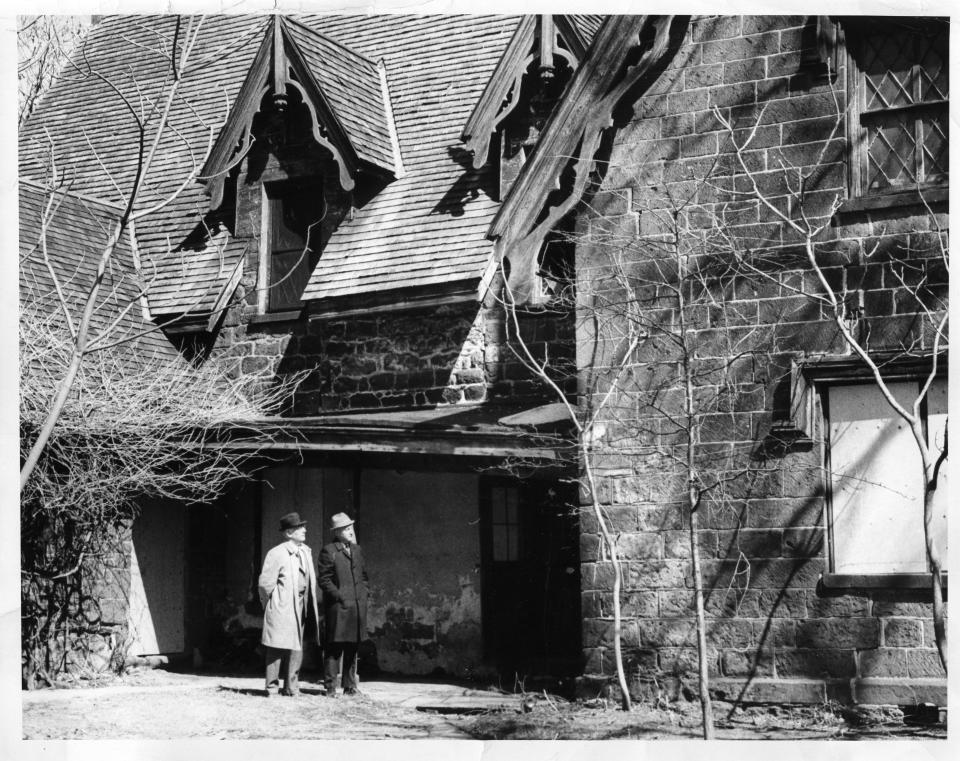A look at Bergen County's Theodosia Prevost, a mother with moxie
- Oops!Something went wrong.Please try again later.
- Oops!Something went wrong.Please try again later.
Theodosia Bartow Prevost was a mother with moxie.
A mother of four by 25, Prevost had to be savvy when her first husband left their Bergen County estate to rejoin the British Army amid the American Revolution, said Victoria Harty, the former executive director of the Hermitage Museum in Ho-Ho-Kus.
Threats to her farm, her livelihood and her family’s home loomed amid a contested Revolution-era hotbed where loyalists lived next to patriots
“She’s caught in a very difficult position on what course to travel and what is going to be the best thing for the safety of her family,” Harty said. Married at 17 and a mom by 21, Prevost was running a 250-acre estate north of Paramus by 25.
She was raising two girls and two boys in a home on the southern end of the property. Her husband was often off travelling as a ranking officer in the Royal American Regiment.

When he was formally recalled to the British Army in 1775, Prevost moved in with her mother and half-sister in a two-story house further north on the property. The now state-owned landmark was called the Hermitage.
The home was a vital asset for Prevost. It was close to one of the few post roads in the area in Franklin Turnpike and became symbolic of the revolution.
In the war's early years, Prevost held an American prisoner of war there for the British. Then, as the Continental Army gained momentum, she welcomed, entertained and flattered the patriots' high-ranking officials.
“For a long time, we’ve kind of perpetuated this idea that Theodosia was a patriot,” Harty said. “We now really view her as a politician.”
Well-educated and fluent in French, Prevost was well-read in popular topics of conversation and poetry. Entertaining was second-nature.
News: NJ Supreme Court rules Bergen County must go out to bid for courthouse restoration
Local: Will Fed rate hikes cool North Jersey's housing market? Some see buyers 'losing that fire'
She most prominently put those skills to work after New Jersey legislators enacted a law mandating the seizure of loyalist property. In 1778, she asked her aunt — the only Patriot in her family — to offer the Hermitage as headquarters for General George Washington following the Battle of Monmouth.
"It seems it's a political move on her part," Harty said. "She's showing that she has faith in the American cause to whoever is kind of looking."
It may have been a bluff. She knew that Washington was fully aware of her English connections. He was nonetheless out to prove he was too much of a gentleman to refuse, Harty said.
Washington made a show of his stay. He arrived with Alexander Hamilton, James Monroe, the Marquis de Lafayette and others. Most of the officers partied. For four days, they drank, ate and conversed with Prevost and her female friends, Harty said. Washington spent most of his time planning the army's next move.

For her hospitality, Prevost was granted special dispensation by Washington to travel to New York City later that summer. The future president even provided a lieutenant colonial 10 years her junior for a chaperone. It was Aaron Burr, a future vice president who was then on his way out of the military after falling from his horse in the Battle of Monmouth. He subsequently spent the last four months of 1778 recuperating at the Hermitage. There, he and Prevost had an affair.
Despite her new intimate connections with Washington's inner circle, the threat of the Hermitage's seizure heightened. Prevost's husband had become Georgia’s British governor. The promotion stirred New Jersey officials in late 1778 to issue a summons for the seizure of his Bergen estate.

A Hermitage regular, New Jersey Attorney General William Paterson, helped block its execution. The threat faded further when James Marcus Prevost was dispatched to Jamaica. It ended when he died there from illness in 1781.
Prevost took ownership of the Hermitage, but not for long. The 35-year-old married 25-year-old Burr, a newly-minted attorney, on the property in July 1782. They immediately left Bergen County for Albany and then New York City, where she died in 1794 from stomach cancer.
Prevost and Burr had only one child that survived past infancy, a daughter also named Theodosia. Lost at sea at the age of 29, Harty and others have claimed she was the subject of an insult that triggered Burr’s famous Weehawken duel with Hamilton.
This article originally appeared on NorthJersey.com: Mother's Day 2022: A look at Bergen County's Theodosia Prevost
